How to strike the balance between creating your dream wedding whilst minimising your environmental impact? The world of weddings and events are major culprits in landfill and CO2. There are an estimated 2.5 million weddings a year, with the average wedding producing nearly 200kgs of rubbish and 63 tons of CO2. Globally that equates to about a billion tons of rubbish and as many emissions as four people would create in a year.
There are so many ways to reduce waste and to make your day more sustainable without compromising on style. Low waste and eco-friendly does not have to mean low key. Planning with sustainability in mind is crucial as the planet faces such immense environmental challenges. Set off on the right foot as you enter this exciting chapter of life. Your eco-friendly wedding choices may influence others – so lead by example and go green on your big day.
The Dress
Fashion is one of the most environmentally damaging industries in the plant. The fashion industry has a disastrous impact on the environment. In fact, it is the second-largest polluter in the world, just after the oil industry. Say ‘I Do’ in a sustainable, pre-loved or vintage wedding dress.
- Opt for a designer specialising in sustainable wedding dresses - ethical wedding dresses using organic and natural fibres that do not require chemicals to be produced are widely available.
- Choose clothes made in countries with stricter environmental regulations for factories (EU, Canada, US).
- Don’t trash your dress. The trend for running through muddy fields or hacking your beautiful dress off to a racy mini is pretty rock n roll – but you could donate it instead and double the love.
- Choose Pre-Loved or Vintage. Reusing a dress reduces the cost. Use a local designer to tailor a vintage dress to your design. This is also relevant for the bridesmaids and flower girls.
- Let your bridesmaids choose their own dresses. The team you gather around you are far more likely to re-wear a design they love – avoiding the throwaway culture. If they really won’t wear them again, encourage them to donate them to charity.
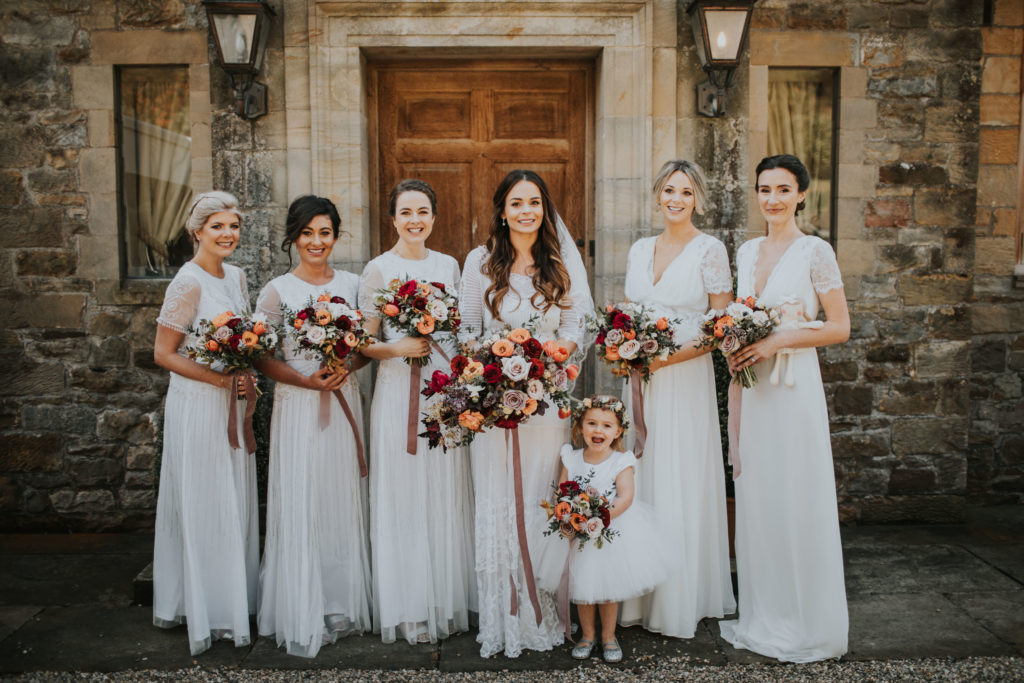
The Flowers
Flowers are a big and beautiful part of your day - but consider reducing the impact on your wallet and on the environment. Chemical pollution is a big problem. The cut-flower industry is a short-cycle production process that requires the use of agrochemicals which adversely affect soil, air and the water supply. The carbon footprint to import flowers is profound.
- As an alternative, consider using plants that can be planted out in your garden after the event – creating a living reminder. A horticulturist can advise you on effective plants or blooms that can be tended in the months preceding your big day.
- Use fake flowers. Artificial flowers have a reputation for being tacky, dusty and obviously fake. But these obvious plastic fakes have been replaced by realistic hand-dyed silk and delicate synthetic materials that mimic the intricate details and texture of petals. And they will look amazing in your home.
- Foraging for greenery is a beautiful way to embrace the location of your venue - and it’s free. Ivy and willow both look effective as décor and grow abundantly. Task a creative usher or bridesmaid to place the greenery. Thread with flowers or ribbons for splashes of colour.
- Ask family and friends to collect glass jars in the lead up to the wedding. Mismatched jars with sprigs of foraged greenery, pot plants or herbs have a gorgeous boho vibe and tick the recycling box.
- It’s also possible to avoid the use of Oasis flower foam which is made with harsh chemicals and not reusable.
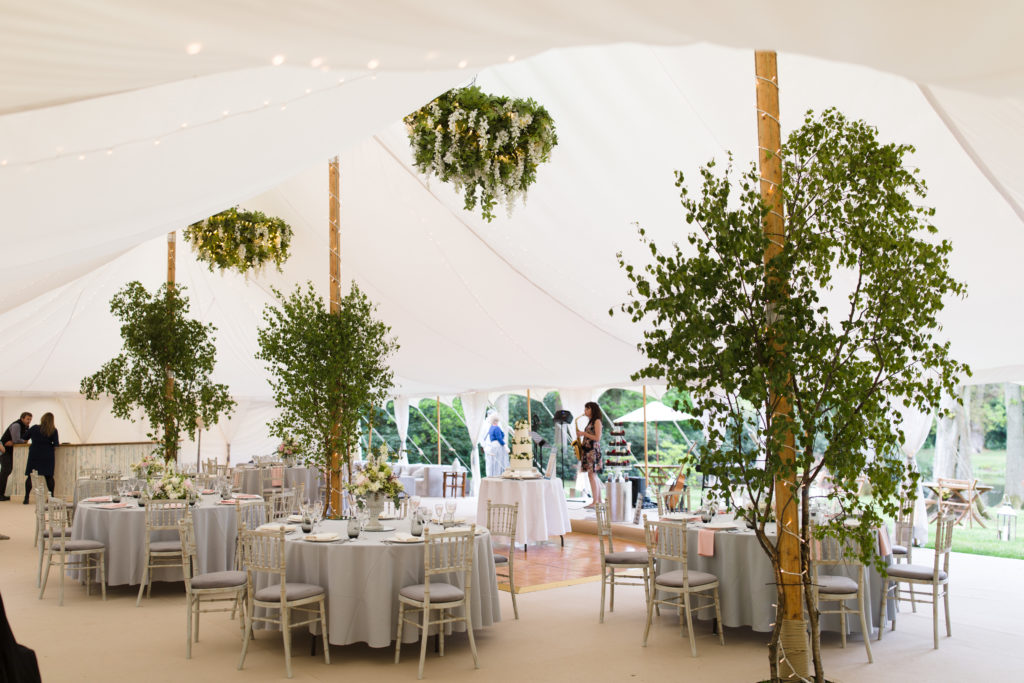
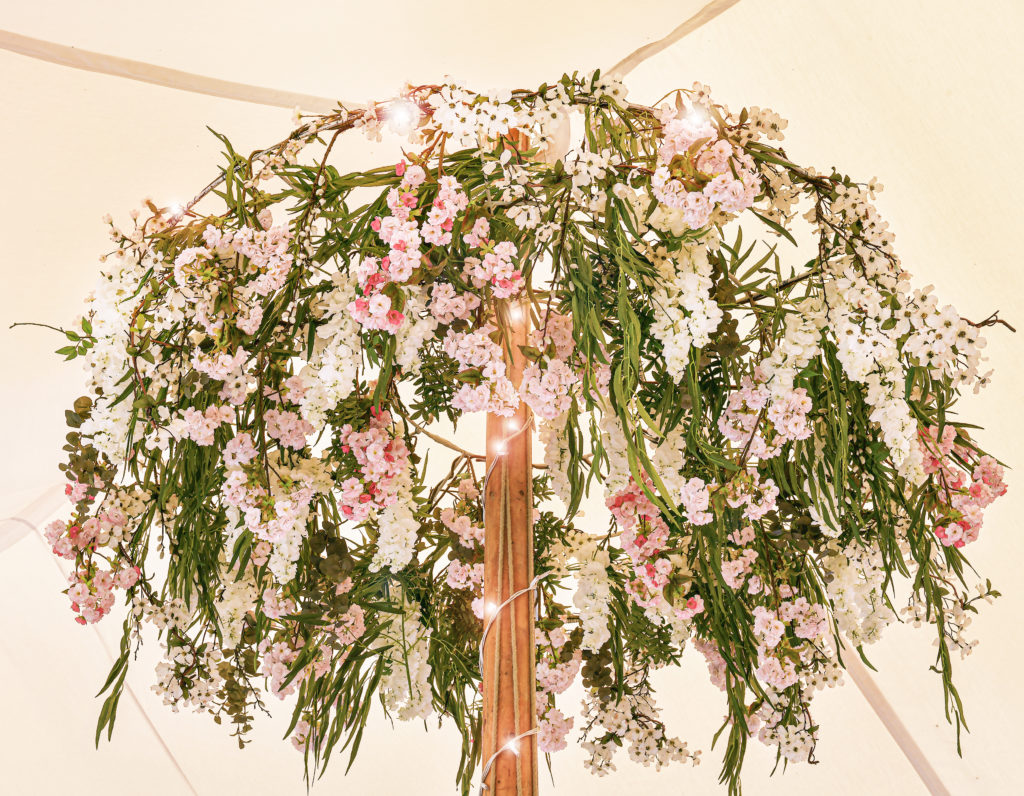
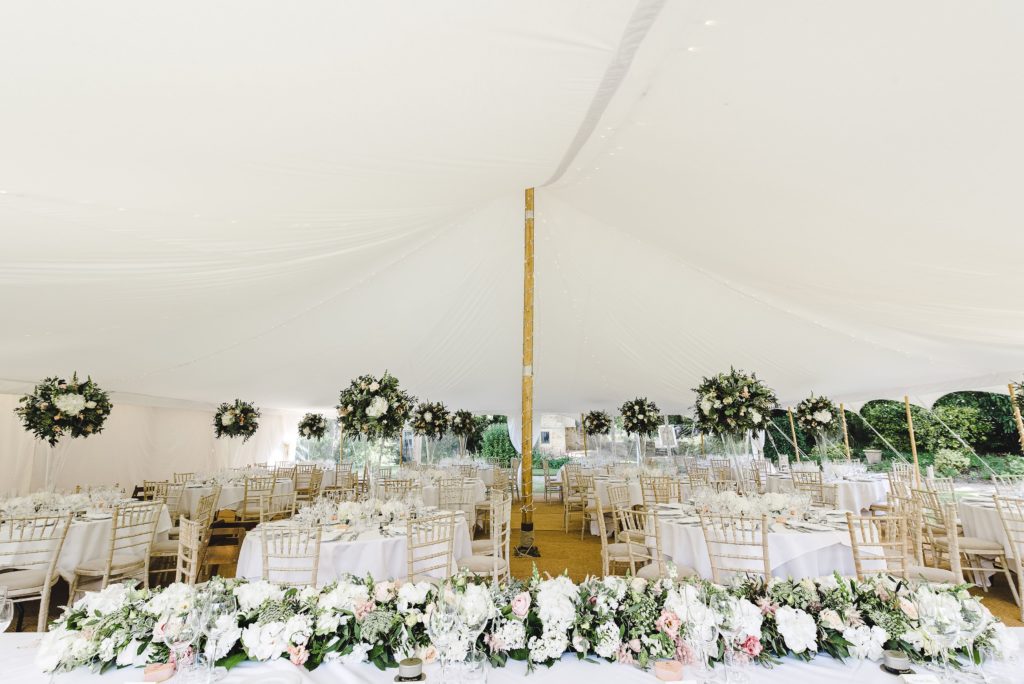
The Food
- Use seasonal produce. Reflect the season with your décor, food and foliage. Choosing food which is in season and grows locally will reduce both your carbon footprint and potentially your budget.
- The late-night snack. All too often the snack intended to soak up the alcohol and sustain the dancefloor for another few hours gets wasted, leaving piles of uneaten burgers or hotdogs which can’t be reused. Why not make something that’s reusable or freezable – dahl, nice veggie chilli or curry are all lovely the next day. The option to cook to order also massively cuts down on waste. Pizzas and tacos, burritos or hearty baguettes and sandwiches can all be made on the fly.
- Go meat-free. Rather than telling people to expect a meat-free meal, pack it with flavour and other proteins. Smuggle in the veggies – your guests will not miss the meat in a tasty and abundant vegetarian meal.
- Avoid disposable dinnerware – and check the bar will be using compostable glasses without straws.
- Use a local organic bakery for your cake - invest in the local economy.
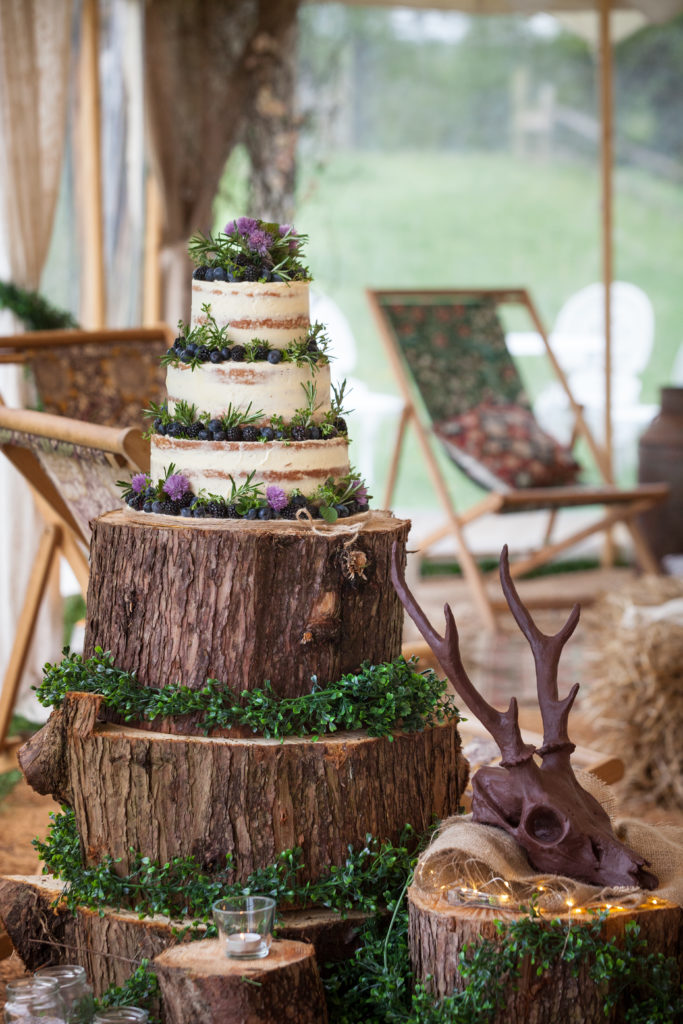
The Wine
Pesticides, air miles, lack of rights for workers. The wine industry has a darker side hidden behind the clever branding and tantalising bottles. There’s a simple way to challenge the problems within the wine industry - to use our purchasing power to shift our consumption to organic and Fairtrade brands.
- Use English wine. Consider shopping closer to home to cut down on the carbon footprint of your wine. British winemakers are doing pretty well on the awards front at the moment, particularly when it comes to sparkling wines.
- Switching to organic wines is the ultimate way to protect workers, the environment and yourself from the harmful effects of pesticides. Organic vineyards must enhance soil health and support biodiversity. They minimise the use of pesticides and chemical fertilisers.
- Go Fairtrade. As well as buying organic brands, you can further ensure that workers are protected by opting for Fairtrade wines. Already, 27 million litres of Fairtrade wine are sold every year, and half of that is to the UK. When you buy Fairtrade wine you are ensuring that farmers get a fair price for their crops and that worker rights are protected.
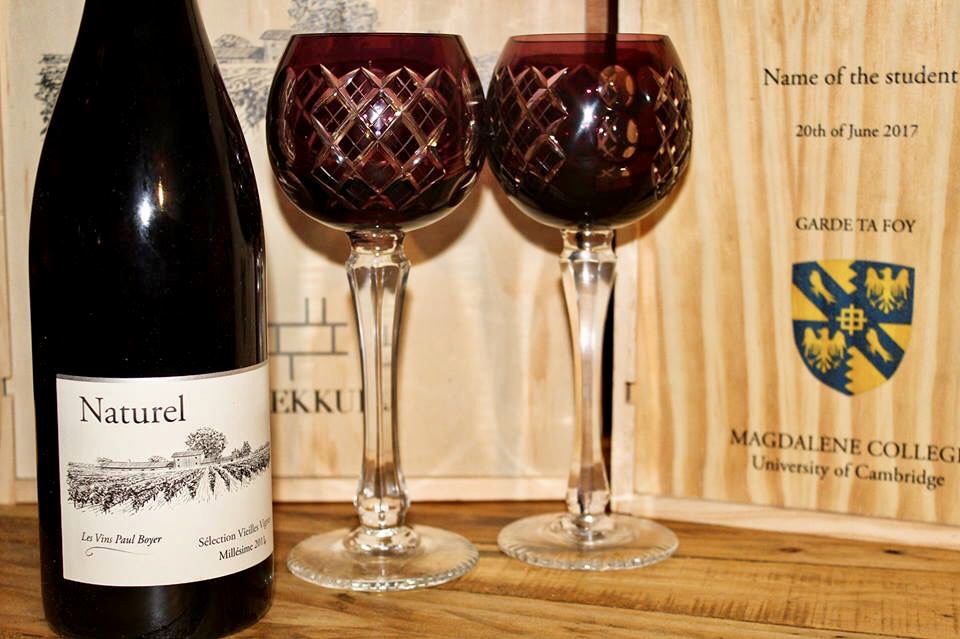 Vegan Wine
Vegan Wine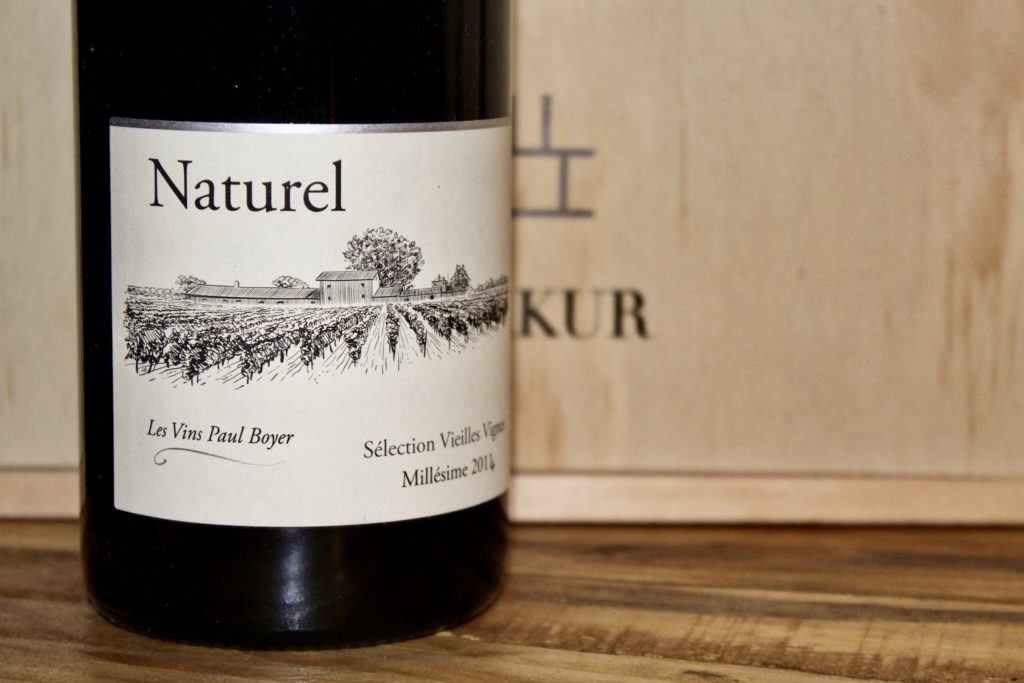 Vegan Wine
Vegan Wine
Other Ideas
- Reduce the number of guests. Travel creates one of the biggest carbon footprints. A tricky one we know but being strict with the guest list reduces waste and travel – the benefit being a lovely intimate wedding.
- Use E-Invites and create a website instead of sending physical invites – or encourage guests to recycle your invite card.
- Buy or make eco-friendly wedding favours. Instead of cellophane gift wrappers, sweets that are left largely uneaten or miniatures that don’t get taken home, try an edible or functional gift - or one that doubles up as a place card. Home-made biscuits, little paper bags of rose petals, packets of wildflower seeds, cut herbs or wooden egg cups.
- Power. Instead of using a petrol or diesel generator, replace for a bio-fuel, battery or solar powered generator.
- The Gift. You’ve already got a blender. Consider an alternative eco-option - such as planting a forest. Every guest donates a tree and together they create a beautiful forest that will grow over time and give back to the planet.
- Rather than switching to plastic glasses as the party begins, use compostable cardboard cups or paper. Or entrust your guests with tumblers – sturdier than wine glasses and far more chic than plastic flutes.

